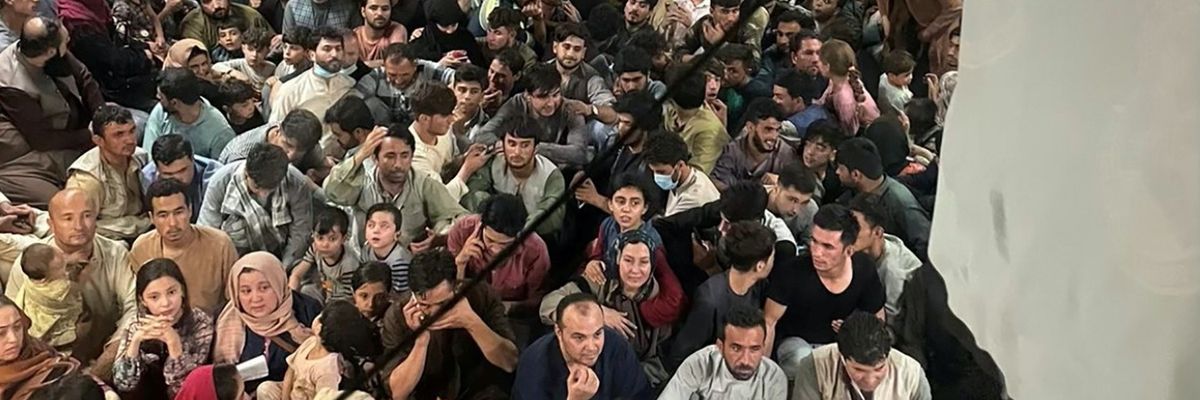The Biden administration missed its chance to undertake a fundamental reevaluation of US Middle East policy in its early honeymoon period. There were urgent domestic priorities, there was a world of repair work to be done on U.S. alliances, there was no national consensus on almost anything, and there was a raging global pandemic.
Getting out of Afghanistan looked like an easy call. Three presidents in a row had proclaimed it necessary, the American public agreed, and the Trump administration had negotiated the equivalent of a surrender to the Taliban. All that was left was to follow through.
The catastrophe came faster and harder than almost anyone predicted. Now that it is here, and with America’s attention focused even briefly on the policy failures of the past two decades in the Middle East region, perhaps the Afghan moment provides an opportunity to go back to basics and undertake a zero-based analysis of U.S. Middle East policy.
At least since the catastrophe in Iraq, and the vast expenditure of treasure and (mostly non-American) blood, U.S. policy has been based on an absurdity. The benefits of the policy have been outlandishly at odds with its many costs. But because of domestic politics, it was never possible to just call a spade a spade, to simply admit the limits of U.S. power to transform the politics of the region and to reduce our military footprint to a level consonant with our national responsibilities and interests. Instead, one administration after another adopted a sort of stealth policy: try to reduce U.S. responsibilities without attracting undue attention or admitting defeat.
Challenging the existing status quo is costly. Typically, it takes a fundamental crisis or disaster to muster the will to take a fresh look at reality. That means a genuine inquiry with an open mind, not just positing a political or ideological outcome and contorting the analysis to that end. The process begins with a clear-eyed understanding of U.S. national interests.
Experienced hands know that the review process can be skewed by an expansive definition of national interests. So the discussion of national interests should be subject to several questions: (1) is this "interest" truly critical to the United States, or is it actually an interest of one or more states friendly to Washington? (2) if it is uniquely relevant to the United States, can it be dealt with by a friendly coalition of states inside or outside the region? (3) can it be "diplomatized?" (4) is quality intelligence sufficient to close the gap? (5) if it requires a military dimension, consider the optimum size, force structure and need for a permanent regional presence versus a more mobile "over-the-horizon" presence with the necessary infrastructure available on the receiving end.
American interests in the region have changed over time. Facts on the ground have also changed. When Nixon and Kissinger were pondering their choices, as the British were withdrawing from the region in the early 1970s, Washington relied almost entirely on an "over the horizon" presence, with little or no permanent military infrastructure in the region except the former British anchorage in Bahrain. There was no Central Command and no Fifth Fleet and no Al-Udeid airbase, to name a few. The answer is not to renounce all that, but rather to consider how to use these resources more efficiently and effectively. The existence of facilities should not be like an open vessel that must be kept filled at all times.
One objective worth keeping in mind in such a review is whether and how the U.S. might contribute to a self-regulating regional balance of power. I think we are actually closer to such a status quo than we seem to be willing to acknowledge. Is there really a serious danger that one regional state will dominate all the others? Are regional states powerless to prevent such an outcome? Must we lie awake nights worrying that one or more regional states will refuse to sell their oil? Will one or more of them mount a sustained and effective attack against energy lines of communication? Is the very large U.S. military presence making things better or worse?
This is not a binary issue. The appropriate level of U.S. involvement is a spectrum, not a switch. One administration after another has been slowly moving the needle, but all too often the process has been hit and miss. Although there is ample reason to suspect that Washington and its friends are ill-equipped to develop and carry out a coherent strategy, that is not a reason to ignore the problem.
One way to deal with it might be to just tell the truth: the United States is over-extended, and its Middle East policy costs more than it's worth; cut the denial and consider what practical steps we might take to improve the region on our way out. If we were waiting for the proper moment to undertake a thorough overhaul of U.S. policy in the Middle East, this is it.
















